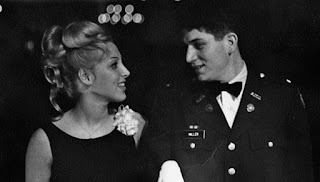I reviewed this novel for The Burton Book Review and loved it so much that I am reposting this guest post and offering you a chance to snag your own copy.. see below for giveaway details!!!
Emilie sounds like such a magnificent lady-- charming, scientific, exhibitionist, Voltaire's lover... read a review here.
 |
| Finding Emilie, by Laurel Corona |
Emilie du Châtelet: Physicist and Party Girl
The Marquise du Chatelet’s parlor at her husband’s ancestral home in Cirey looked in many respects like that of any other aristocrat. The banquettes were plush, the chairs ornately carved, the tea and liqueurs beautifully arrayed in Sevres porcelain cups and tinted crystal glasses, the cakes and pastries freshly baked by the servants in the basement kitchen.
Only one thing was unique: in the center of the parlor, with chairs arrayed around, was a bathtub--a bathtub with Emilie in it, happily chatting away with her guests while clothed only in a diamond necklace and a silk chemise, transparent when wet. When her water cooled, a manservant recalled in his memoir, he would bring hot water and pour it between her parted knees, which revealed, in his words, “all her nature.”
Well, why not? Emilie du Chatelet was brilliant at everything, but was best at two things: knowing what she wanted, and getting it. From the age of ten she used her prodigious mathematical intelligence to beat adults at cards at the salons, then taught herself math and science from the books she bought with her winnings. As a young wife and mother, she occasionally cross-dressed to go to scientific meetings forbidden to women. When she wanted to learn to sing, she hired one of the voice teachers at the Comedie Italienne as her private tutor, learning whole lead soprano roles by heart even if she would never sing on stage.
Vivacious, irrepressible, charming, and daring, Emilie blazed through the world of Louis XV’s France, but her corset, wig, and panniers hid the most incredible thing about her: her first-rate scientific mind. Emilie du Chatelet used her privileged life to become one of the most important women of science not just in her era but in any. The fact that she is not a household word has far more to say about others than it does about her.
Believing until her thirties that her studies were just for curiosity and that she would never amount to anything as a scientist, she spent years helping her lover, Voltaire, conduct scientific experiments and write a work on Newton which he claimed as his own work. Voltaire had no particular aptitude for such work, but he wanted a seat in the French Academy of Science as a complement to his fame as France’s preeminent man of letters. He never got close. Today, it’s commonly believed that any solid, original thinking in Voltaire’s scientific works is attributable to Emilie.
A prize offered by the Academy of Sciences for the best paper on the nature of fire caused Emilie to break away scientifically from Voltaire and submit her own paper anonymously. She did not win, but received an honorable mention and the unusual acclaim of having her paper published alongside the winner--an indication that the only reason she had not won was because the Academy was unprepared to give the prize to a woman.
She continued a dual life of courtly obligations and scientific work into her early forties, when at the unheard-of age of forty-three, she got pregnant by a dashing young soldier- poet, with whom she had a passionate affair.
Premonitions of death in childbirth caused Emilie to work at a breakneck pace on her most important work, a translation of Newton’s Principia Mathematica. But hers was no mere translation. Few could comprehend Newton’s work, so Emilie rewrote it in French that scientists could understand. She also wrote commentaries to explain and expand upon Newton’s points, and in places where Newton had not presented adequate mathematical proof, Emilie figured out what those proofs would be and supplied the equations. Her translation of Newton’s Principia is still, 250 years later, the standard one used in France.
Unfortunately, Emilie’s premonitions turned out to be true. After an uneventful labor and delivery, she died six days after the birth of a daughter, Stanislas-Adelaide, probably of an embolism.
My novel is about finding Emilie on many levels. First, I “found” her and wanted to tell her story. But the book is less about her than her daughter. Effectively orphaned, Lili (as the girl is known) grows up, at least in my imagination, as unusual and independent of mind as the scandalous woman who bore her. Reaching her teens, Lili’s world closes around her as an impending loveless marriage threatens to take away her independence of spirit and dreams for her future. Believing that learning about her mother may point the way for her own life, she sets out to find Emilie for herself. Last, readers will find Emilie through the real-life scenes that appear between the chapters.
Welcome to 2011, Madame la Marquise! A more appreciative world awaits.
~~
Thanks to Laurel Corona for providing her with this piece! Her books can be found at online retailers at the following links:
Amazon
Barnes and Noble
Book Depository
Borders
GIVEAWAY!!!
2 lucky followers of HF-Connection will be randomly chosen from your comments. Leave me your email address so that I can email the winner..
Score extra entries!
+1 Facebook this Post
+1 Tweet this post
+2 Graphic link to this post on your blog
Giveaway is open USA, ends 5/7/11. Good Luck!!








